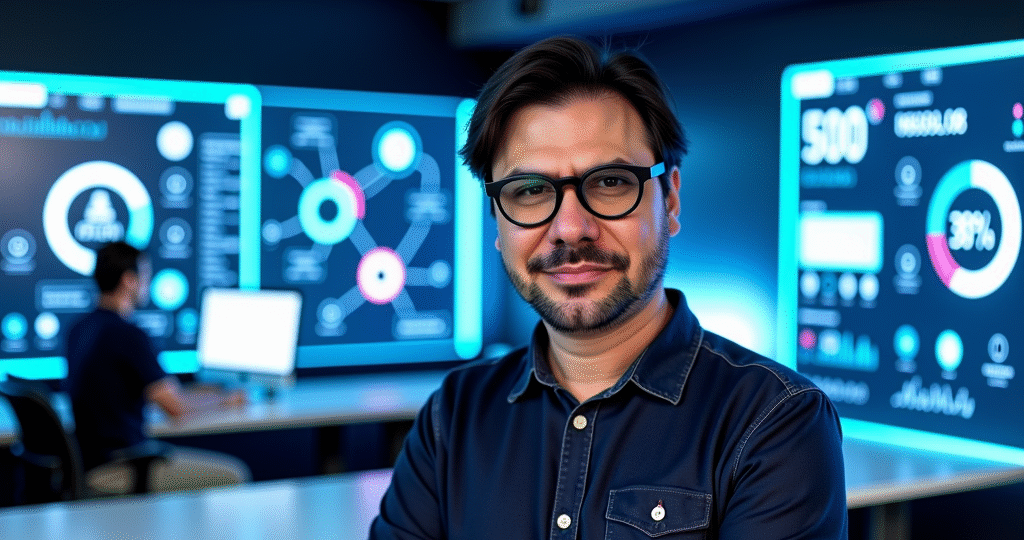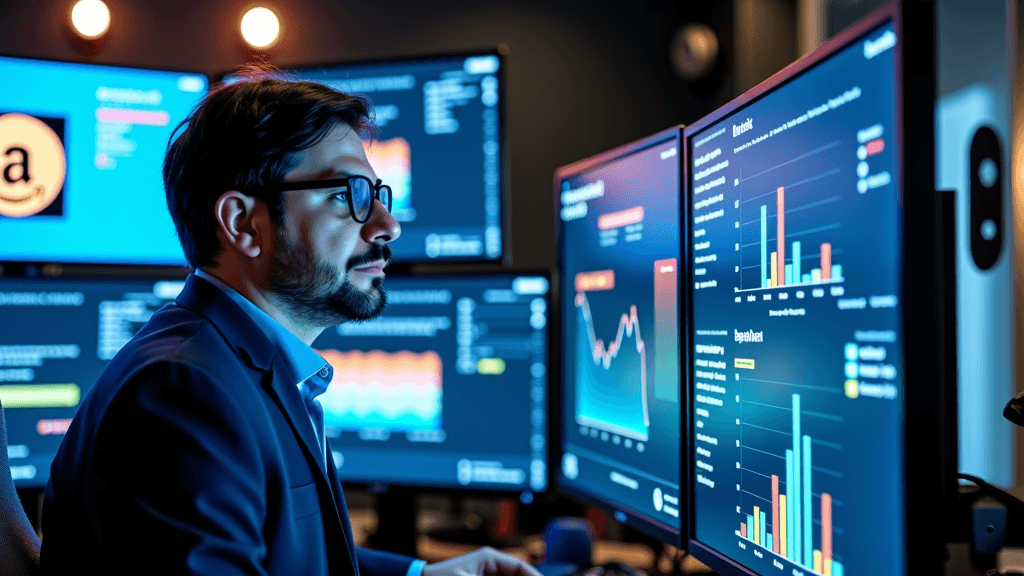GPT-5 Launches with Stable Prices as Microsoft Maps Professions Most Impacted by AI - Why It Will Redefine the Future of Work
August 8, 2025 | by Matos AI

The launch of the GPT-5 on Thursday marks a new chapter in the evolution of artificial intelligence. But it wasn't just another technological upgrade that caught my attention in the last 24 hours. It was the convergence of data that reveals how AI is consolidating itself as a mature business tool, especially when we look at Microsoft's new study on the real impact of AI on professions.
GPT-5: Mature Developments with Stable Prices
THE OpenAI has maintained GPT-5 prices at the same levels as previous versions: US$ 200 per month for the Pro version, US$ 20 for Plus and corporate plans starting at US$ 25 per user per year. This pricing decision reveals an interesting strategy: commercial stability in the midst of a technological race.
What impresses me most about GPT-5 is not just the 45% fewer factual errors compared to GPT-4, but the “chain of thought” window that allows users to see how the AI arrived at that answer. This solves one of the main historical limitations of language models: transparency.
Join my WhatsApp groups! Daily updates with the most relevant news in the AI world and a vibrant community!
- AI for Business: focused on business and strategy.
- AI Builders: with a more technical and hands-on approach.
As someone who has worked with thousands of startups, I see a valuable lesson here about product maturity. OpenAI is no longer in the race for features. It's refining the experience and building trust - something essential for mass enterprise adoption.
Microsoft Reveals Which Professions Are Really Being Impacted
But the most revealing data of the last 24 hours came from elsewhere. A Microsoft analyzed more than 200,000 interactions with Copilot to map the real impact of AI on American professions. The results are surprisingly specific and debunk some myths.
The professions most affected include:
- Translators and interpreters
- Editors and journalists
- Sales representatives
- CNC programmers
- Historians
The least affected are:
- Nurses and health professionals
- Machine operators
- Professions that require manual labor
- Positions with a high empathy component
Here's the crucial insight: AI isn't replacing jobs, it's transforming how we work. And that makes all the difference to how we prepare for the future.
Why This Data Matters to Brazil
In Brazil, we have an even more interesting reality. While in the US the data shows this transformation taking place, here we are still in the early stages of adoption. According to Microsoft research, AI is mainly used for information gathering and editing - basic tasks that only scratch the surface of the technology's potential.
This represents a unique opportunity. While other markets have already gone through the experimentation phase, we have the chance to learn from global successes and mistakes and implement AI more strategically from the outset.
The Economic Reality of AI in Brazil
Brazilian figures are beginning to tell an interesting story. A KPMG and PwC show that 70% of global CEOs invest heavily in generative AI, with 51% of Brazilian CEOs expecting increased profitability in the next 12 months due to AI.
Practical cases are already emerging: the company Evope reports cost reductions of between 15% and 25% in just a few months, with savings of R$ 500,000 a year in invoice processing alone. The ROI ranges from three to five times the capital invested in two to three years.
THE VOLL, Latin America's largest digital corporate travel agency, is another fascinating example. It has jumped from R$ 600 million in 2023 to a projected R$ 1.7 billion in 2025 - growth of 80% driven by AI agents generating up to 40% in savings on airline tickets.
The Hidden Cost of Revolution
But it's not all flowers. A BBC reveals worrying data on the environmental impact of AI. In Brazil, we have 162 data centers with a capacity of 750MW to 800MW - equivalent to the consumption of a city of 2 million inhabitants. Demand is expected to grow 20-fold over the next decade.
By 2038, the sector will demand energy equivalent to a city of 43 million inhabitants - almost four times the size of São Paulo. It's a reminder that the AI revolution needs to be sustainable, not just profitable.
The Unexpected Phenomenon of Trust in the Media
A surprising discovery came from a study with the German newspaper Süddeutsche Zeitung: exposure to AI-generated content increases concern about disinformation, but paradoxically leads to greater engagement with trusted traditional outlets.
Readers exposed to AI visited the newspaper's website more often and were 1.1% more likely to renew their subscriptions. It's a valuable lesson: in a world saturated with artificial content, reliability becomes even more valuable.
Brazil as a Global Laboratory
While Trump administration launches its “AI Action Plan” focused on deregulation and accelerated growth, Brazil has the opportunity to build a more balanced model.
We have emerging cases such as Adapta, AI aggregator with over 100,000 subscribers which unifies various models into a single chat. These initiatives show that we don't just need to consume technology developed abroad - we can create our own solutions for our specific challenges.
Three Practical Lessons for Leaders and Entrepreneurs
1. AI is a tool for efficiency, not replacement
Microsoft's data is clear: professions with a high human component (empathy, creativity, judgment) remain essential. The focus should be on how AI can amplify these human capabilities.
2. AI ROI is measurable and fast
Brazilian cases show a return of 3 to 5 times the investment in 2-3 years. But this requires strategic implementation, not just fad adoption.
3. Sustainability is not optional
The exponential growth in AI energy consumption is forcing us to reflect on sustainable innovation models. Companies that ignore this will face regulatory and reputational problems in the near future.
The Time to Act is Now
We are at a unique moment in Brazilian technological history. We have enough data to make informed decisions, practical cases to inspire us and a window of opportunity to build lasting competitive advantages.
The question is no longer “if” your company should adopt AI, but “how” to do so in a strategic and sustainable way. GPT-5 brings transparency, Microsoft's studies bring clarity on impacts, and Brazilian cases bring proof of economic viability.
In my mentoring with leaders and startups, I constantly see the difference between companies that experiment with AI and those that implement it strategically. The former spend time and money without clear results. The latter build lasting competitive advantages and generate real value for their businesses.
The AI revolution is no longer a future promise - it's a present reality. And those who know how to navigate this transformation with strategic intelligence will come out ahead in this new knowledge economy.
✨Did you like it? You can sign up to receive 10K Digital's newsletters in your email, curated by me, with the best content about AI and business.
➡️ Join the 10K Community here
RELATED POSTS
View all



